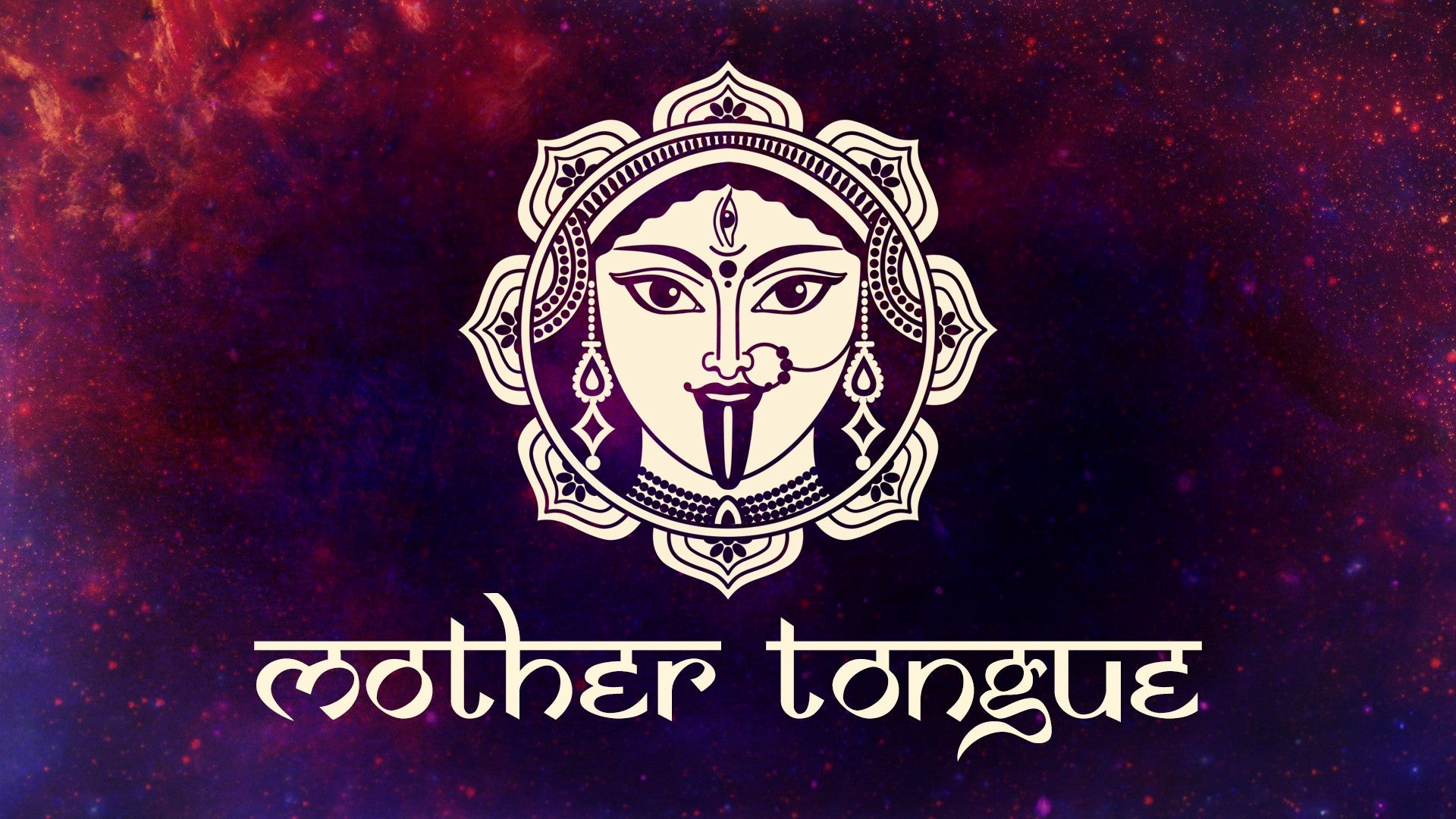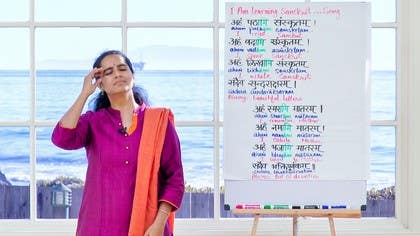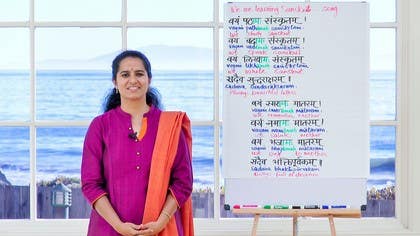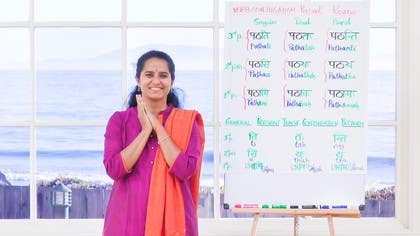Description
About This Video
Transcript
Read Full Transcript
Namaste and welcome dear friends. We've just looked at how the verb is conjugated in the first person in the present tense. So I have a little song for you to help you remember the forms of the first person and this is in the singular form. Alright, so I'd suggest that you sing after me and then we'll figure out what the song is all about. Alright, so here we go. Ahampatami Sanskritam. Patami is I read. Alright, so that is I read Sanskrit. Ahampatami Sanskritam. Ahampatami Sanskritam. Very nice, I speak Sanskrit. Ahampatami Sanskritam. Ahampatami Sanskritam. Ahampatami Sanskritam. Very nice, I write Sanskrit. Sadiva Sundara Ksharam. So there's no me in that but sadiva means always. Sundara means beautiful and we have a sound, a phonetic conjunction there, a combination, aksharam. So that becomes Sundara Ksharam. There's a lengthening of the vowel a. So Sundara is beautiful letters. So we'll go through it once and then we'll sing it after that. Alright, so aham smarami mataram. I remember mother. The word mataram is mother. So I, aham, smarami is remember mother, my mother, the mother, any mother who's special to you. Aham nam mamimataram. I bow down. I salute the mother. Ahampajamimataram. I bhaja is a difficult one to translate in English but it is I sing with devotion basically. I sing with that love in my heart to my mother. I sing, I sing mother you can say that. I sing to mother let's say that. Okay. Sadiva Bhakti Purvakam. Very good. Sadiva again is the same thing. So always, always Bhakti is devotion and Purvakam full of devotion. Full of devotion. So there we are. It's a cute little song but it's a nice one to practice the first person conjugations.
So I'll say it and you'll repeat after me and please do the actions like I do. Alright, aham bhata me sanskritam. Aham vadam me sanskritam. Aham lika me sanskritam. Sadiva Sundaraksharam. Aham Smiramimataram. Aham namamimataram. Aham bhajamimataram. Sadiva Bhakti Purvakam. So did you enjoy that? Yeah? So I'll sing it maybe just once more. You'll repeat after me and the third time we'll try and sing it together. Great? Let's go for it. So I read Sanskrit. Aham bhata me sanskritam. Aham vadam me sanskritam. Aham lika me sanskritam. Sadiva Sundaraksharam. Aham Smiramimataram. Aham namamimataram. Aham bhajamimataram. Sadiva Bhakti Purvakam. Yes, we are getting it. I'm so happy. So now let's do it together.
Last time. Yeah? If you do the actions, the verbs will be memorized much more easily. Let's do it. And just before we go on, the mother here is special because I've done some psychology. And what I studied when thinking about, you know, life development processes and all, that the mother, she carries us for nine months. And they say that the fact that we grow up to be normal is such a grace because had she during those nine months thought of anything which was not right or eaten the wrong food or had a very negative strong emotions, it could have impacted the way we are formed. So the fact that I think just the simple fact of being full or yeah, I think just the very fact of being born is a recognition or a sense of gratitude towards the mother. And probably if you keep that in your heart, then this becomes very beautiful as well. So let's do it. Sanskrit and then the mother. All right. So aham together. Aham bhata me sanskritam. Aham vadam me sanskritam. Aham lika me sanskritam. Aham bhajam me sanskritam. Aham bhajam me sanskritam. Aham bhajam me sanskritam. Enjoy singing Sanskrit. It will fill your life in many ways. Namaste.
Mother Tongue: Verbs
Comments
You need to be a subscriber to post a comment.
Please Log In or Create an Account to start your free trial.










